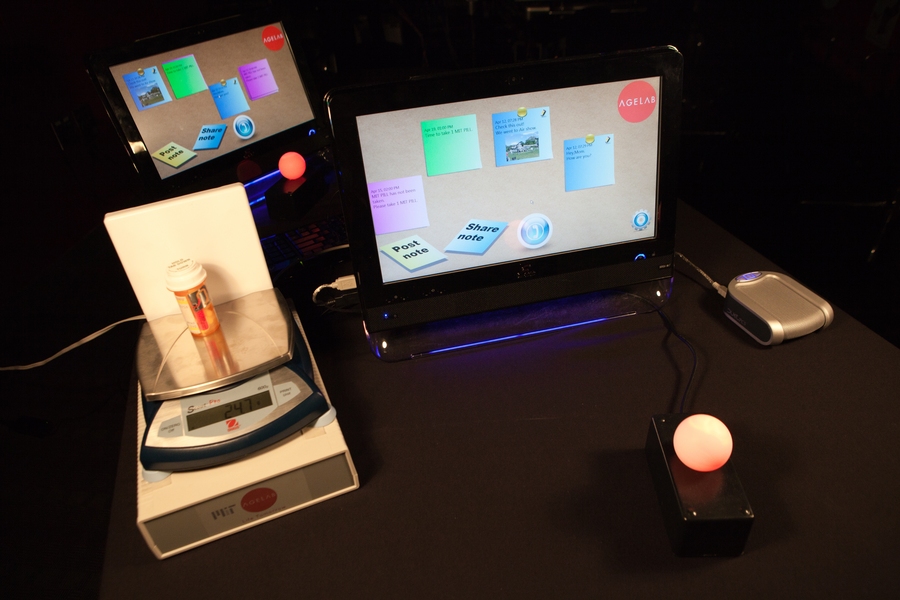A paper co-authored by a team from the MIT AgeLab and Daisuke Asai of NTT Cyber Solutions Laboratory of Japan (who spent a year at MIT AgeLab) won an Excellent Paper Award at the recent IEEE ICT Convergence Conference in Seoul, Korea. The MIT AgeLab team who co-authored the paper includes co-principal investigators Joseph Coughlin and Olivier de Weck as well as Chaiwoo Lee, a PhD candidate in MIT's Engineering Systems Division (ESD); Jarrod Orszulak; and Richard Myrick.
The award-winning paper is titled, “Integration of Medication Monitoring and Communication Technologies in Designing a Usability-Enhanced Home Solution for Older Adults,” and aims to develop and evaluate technologies that can help older people live at home longer while maintaining safety and quality of life. Rather than testing in an artificial lab setting, the research team tested the technology in real homes with real parent-child pairs. Below is an abstract for the paper:
The award-winning paper is titled, “Integration of Medication Monitoring and Communication Technologies in Designing a Usability-Enhanced Home Solution for Older Adults,” and aims to develop and evaluate technologies that can help older people live at home longer while maintaining safety and quality of life. Rather than testing in an artificial lab setting, the research team tested the technology in real homes with real parent-child pairs. Below is an abstract for the paper:
Technology-enabled solutions have been increasingly developed for aging-in-place. Previous studies have developed systems to assist older adults in managing medications and maintaining social connections. However, although developed for direct user interaction, most have failed to be sufficiently evaluated by users. This paper describes the development and testing of a home solution for older adults’ medication management and communications. The system integrates RFID-based medication management and communications technologies with an intuitive interface. A long-term field trial was conducted for an extensive usability testing and evaluation. With its current design, the system was found to be useful, easy to use, and satisfying.This research is based on both the technology-assisted aging-in-place concept spearheaded by the AgeLab and earlier RFID-logistics management software that the MIT Strategic Engineering Research Group (led by de Weck) had tested and evaluated for NASA.






